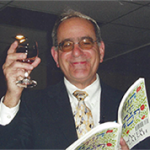It is likely that there will be fewer cultural options nearby. You may have to drive to the nearest city to see plays or concerts or to go to fancy restaurants.
There are also practice-related concerns that may be harder to address. One of them is finding, and then keeping, a partner. Urban areas have a much wider selection of physicians from which to choose.
Unless a spouse is a physician or can run his or her own business, employment opportunities are often scarce. Physicians in rural areas often have to train their own support staff.
In some cases, the hours worked can be a deal breaker.
“The reason I am the only rheumatologist in my practice is not for lack of trying to find a partner,” says Dr. Moeller. “At least six times I got close to finding a partner only to have it fail at the last minute because they did not want to put in the 60- to 80-hour weeks that are often needed. It takes a certain type of person to accept the responsibility that goes with being the only specialist caring for 30,000 people over an area of hundreds of square miles.”
However, this tends to be situation specific. Dr. Ziegenbein’s practice with a large multispecialty group alleviates much of the time pressures, as hospitalists and internists cover time away from the office.
“The important thing to think about when looking at professional opportunities is to sit down and be honest with yourself about what makes you smile at the end of the day,” says Dr. Moeller. “I get a real joy out of caring for patients, and the rural setting made that easy and fulfilling.”
Concerns for Future
The physicians that are nearing retirement age have concerns about the longer-term viability of rural practice. They see younger physicians leaving school with large loan debt that makes it harder, if not impossible, to set up a private practice. They also see a generational shift in priorities, with the family and other interests becoming more important than professional pursuits. Both of these may move new doctors to go with group practices in more populated areas.
“What I worry about the most these days is what is going to happen to patients if I become ill or have to retire,” says Dr. Block.
Despite differences in age, location, and type of practice, all four physicians were in complete agreement about one thing. They would still practice in a rural setting if they had it to do over again.



